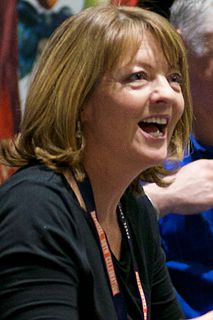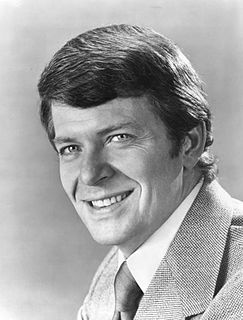A Quote by Sarah Sutton
I'm not really a science-fiction fan, I quite like the idea of getting away from the science-fiction side of it, for two episodes. It was lovely, it was a super story and great fun.
Related Quotes
Being a fan of science fiction, I collect a lot of science fiction art work and so if you go to my house there's like a library and you just geek out on science fiction material. A lot of the colony worlds specifically are built as a melting pot of different societies, because the world is at a point where there are only two zones that are left inhabitable.
Science fiction is a weird category, because it's the only area of fiction I can think of where the story is not of primary importance. Science fiction tends to be more about the science, or the invention of the fantasy world, or the political allegory. When I left science fiction, I said "They're more interested in planets, and I'm interested in people."
Science fiction is the most important literature in the history of the world, because it's the history of ideas, the history of our civilization birthing itself. ...Science fiction is central to everything we've ever done, and people who make fun of science fiction writers don't know what they're talking about.
The real origin of science fiction lay in the seventeeth-century novels of exploration in fabulous lands. Therefore Jules Verne's story of travel to the moon is not science fiction because they go by rocket but because of where they go. It would be as much science fiction if they went by rubber band.
Science fiction is fantasy about issues of science. Science fiction is a subset of fantasy. Fantasy predated it by several millennia. The '30s to the '50s were the golden age of science fiction - this was because, to a large degree, it was at this point that technology and science had exposed its potential without revealing the limitations.
The main difficulty is finding an idea that really excites me. We live in an age when miracles are no longer miracles, and science and the future are losing their sense of mystery. For science fiction, or at least the type of science fiction I write, this development is almost fatal, but I'm still giving it all I've got.
The literature now is so opaque to the average person that you couldn't take a science-fiction short story that's published now and turn it into a movie. There'd be way too much ground work you'd have to lay. It's OK to have detail and density, but if you rely on being a lifelong science-fiction fan to understand what the story is about, then it's not going to translate to a broader audience.




































